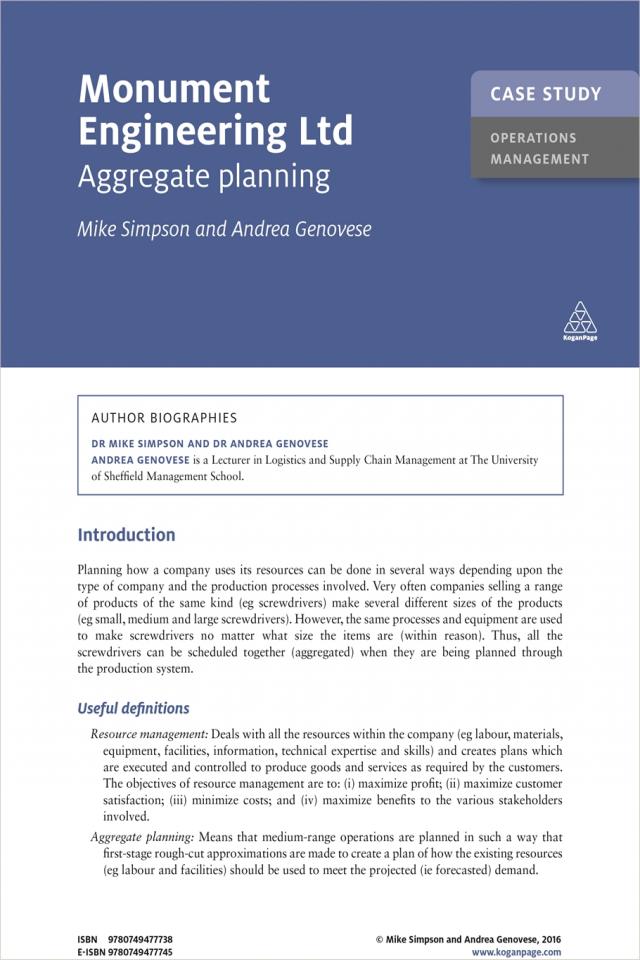- Explains the role of stocks in the organization, their effect on break-even points and strategies for managing them to meet customers' needs.
- Presents how to transform forecast demand and capacity plans into an aggregate plan, considering key production questions and issues.
- Contains graphs for measuring demand against production rate.
- Guides the reader through the calculations and analysis process through a question and answer format.
Case Study: Monument Engineering Ltd
Aggregate Planning
Key features at a glance
Ebooks are subject to sales tax in many regions, including all EU countries. Tax will be calculated at the checkout where applicable.
You can read ebooks purchased from our website through the Kogan Page Bookshelf®.
Powered by VitalSource®, it enables anytime, anywhere access, including Read Aloud: simply log in to the desktop app or download the Bookshelf app for iOS or Android and Kindle Fire. To learn more please visit our ebooks page.
About the book
Planning how a company uses its resources can be done in several ways depending upon the type of company it is and the production processes involved. The case study provides essential guidelines on how to create a successful aggregate plan through analysing stock levels, production rate and customer demand.
Aimed at students on operations management courses, this case study analyses how companies can sell a range of products of the same kind, such as screwdrivers. The authors assess how the same processes and equipment are used to make these products, no matter what size the items are. Thus, all the products can be scheduled together (aggregated) when they are being pushed through the production system. This improves the company's processes.
Mike Simpson and Andrea Genovese have explained the role of stocks in the organization, their effect on break-even points and strategies for managing them to meet customers' needs. In this case study they present how to transform forecast demand and capacity plans into an aggregate plan, and consider key production questions and issues. The case study also includes graphs for measuring demand against production rate and guides the reader through the calculations and analysis process through a question and answer format.



